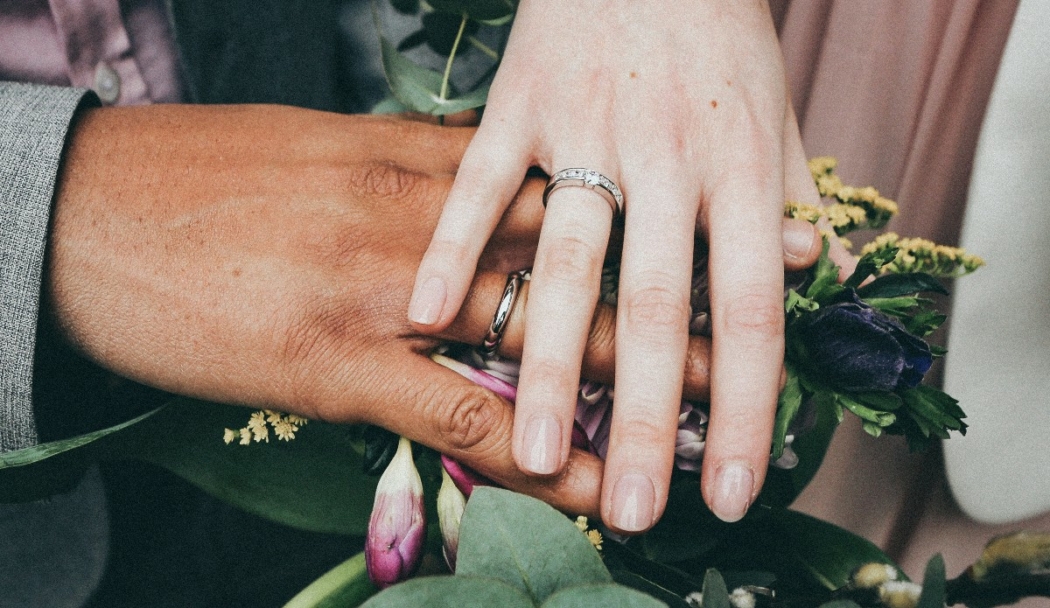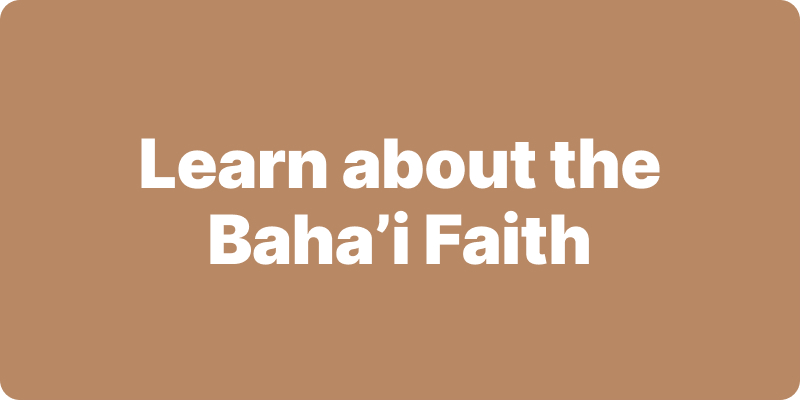I got married about 8 months ago but I realise I have no advice yet to give on marriage itself. I am a bit clueless and my husband and I are just trying to deepen our very limited understanding of what marriage is and how to keep building our fortress of well-being. Marriage is a beautiful adventure that we cherish and enjoy so much, and I know many of us also want to embark on this journey. However, it is the pre-courtship and courtship phase that many of my friends have challenges with. How many times have you said or heard someone say, “there is no one, no one I could get to know in the Baha’i community or elsewhere”?
I often wonder why, in my culture, we are so systematic in many ways, but so influenced by the notions of romance from films and novels. If you followed their line of thinking, they’d have you believe that you will stumble upon your future partner, whilst both reaching for the same copy of Conscious Courtship from the bookshelf of your closest Baha’i Bookstore, only for your eyes to lock and realise s/he is the ONE. In this article, I’d like to explore some ideas and thoughts about how we can be systematic and coherent when looking for a partner. The word “dating” makes me cringe a little but when I use it, I’m referring to courtship or investigating someone’s character. I’m referring to the process that Abdu’l-Baha describes with these words:
Baha’i marriage is the commitment of the two parties one to the other, and their mutual attachment of mind and heart. Each must, however, exercise the utmost care to become thoroughly acquainted with the character of the other, that the binding covenant between them may be a tie that will endure forever. Their purpose must be this: to become loving companions and comrades and at one with each other for time and eternity…
And thus begins the arduous journey of finding someone to get to know, to investigate and become thoroughly acquainted with, as Abdu’l-Baha describes.
Two years before meeting my husband, my friend Noura and I had a great conversation that changed my attitude and my life. I was complaining to her about how there are no guys I would be interested in seriously, and she said I was being ridiculous. My words, not hers, as she said it in a nicer way. She told me I just had to be more systematic in my approach. She was right. Complaining that “there is no one for me” is kind of like saying “There is no one receptive around I could teach, no one wants to join my study circle or help with my JY group.”
In the Ridvan Message of 2014 the House of Justice tells us:
The very fact that each set of circumstances presents its own challenges is enabling every community not simply to benefit from what is being learned in the rest of the Bahaí world but also to add to that body of knowledge. Awareness of this reality frees one from the fruitless search for a rigid formula for action while still allowing the insights gleaned in diverse settings to inform the process of growth as it takes a particular shape in one’s own surroundings. This entire approach is completely at odds with narrow conceptions of ‘success’ and ‘failure that breed freneticism or paralyse volition. Detachment is needed. When effort is expended wholly for the sake of God then all that occurs belongs to Him and every victory won in His Name is an occasion to celebrate His praise.
If you are familiar with your own personal challenges in respect to this area of your life, you might still come to the conclusion that there is no one you are interested in. Well, you might not know anyone at the moment but perhaps it’s your responsibility to meet new people! And it’s fun! So it’s time for outreach. Outreach for the heart. Or you might have a few people you know, but haven’t considered properly, so perhaps it’s time to visit them. Maintaining our attitudes that we would have when sharing the principles of the Faith with others is key in this respect. As we read in the quotations, we strive not to think in terms of success and failure. Instead, we try to have a posture of learning. In our attempts to have meaningful conversation with a few people to explore the possibility of getting to know their characters, we can try to learn about ourselves, we can practice detachment and explore new and creative ways of getting to know people.
Just as we would follow-up if we thought someone wanted to join a children’s class or junior youth spiritual empowerment group, we might have a few follow-ups if we meet someone that we’d like to get to know better. Friends, the next steps can be crucial! Rather than continually reaching out to new people, it’s important to follow up at some point, and take time to explore relationships more deeply. If we never identify people that we want to consolidate with, or strengthen our relationship with, we will meet lots of people, have great conversations, but will still be trying to build communities on our own.
Similar to serving others or participating in building communities, working in teams and reflecting and consulting and studying guidance together can be really helpful. I had a few girlfriends I would talk to and we would reflect together on our progress and our own learning process. What did I learn? How did this conversation or attempt help me to grow spiritually?
It’s helpful to have like-minded friends in this phase, if it is a reflexion and consultation of your own progress, as you need to be careful your conversations don’t turn into gossip and backbiting. I needed a lot (!) of encouragement from a friend to consider that my husband Alexis was receptive/interested. I felt we got along great and after some consultation and encouragement, I decided to ask him whether the feeling was mutual and to learn about this process since I was asking a bit earlier than I had done with others. I wanted to practice detachment and submission to God’s will, rather than “conquering” or “convincing” him. It is similar to when we invite someone to a devotional gathering. Our intention with these conversations is often to explore together what prayer is and what it means for that individual and the community, rather than to try and persuade anyone to come.
Community-building is something many people engage in together on a path, but a fortress of well-being is mainly owned by two people. And in both cases the ownership has to be a conscious decision that requires dedication, a posture of learning, love and cooperation. But now, rather than consulting and reflecting with our other single/married friends, this becomes a process that is owned by the two of us. It was very helpful for me to know that Alexis and I were, and are, in this together and we took time to reflect on our courtship. A reflection on courtship could involve discussing the kind of relationship that two individuals have at the moment, and what kind of relationship they want to build — I was more like “Alexis, why are you messaging me so much? What are your intentions??!” Alexis answered: “Well, best case scenario it ends in marriage, right?” This may not have been the most mature reflective consultation, but it did the trick!
I strongly believe that building the fortress of well-being starts before marriage, in the courtship phase. And in my own experience, what made our getting to know each other strong and simple, was our focus on service. By serving individually and together, we developed many indispensable aspects of our courtship: building strong friendships based on the Word of God, having meaningful conversations, a posture of learning, detachment, sacrifice, truthfulness and the sincerity of our motives expressed in action.
In a letter to an individual in 1994 the Universal House of Justice wrote:
As you know, courtship practices differ greatly from one culture to another, and it is not yet known what pattern of courtship will emerge in the future when society has been more influenced by Baha’i Teachings. However, there is no indication that it will resemble the practices extant in existing cultures… In this interim period, the friends are encouraged to make great efforts to live in conformity with the Teachings and to gradually forge a new pattern of behavior, more in keeping with the spirit of Baha’u’llah’s Revelation.
I hope that the more we learn about the process of community-building and the more coherent our lives become, the less confusing dating will be but I hope you’ve found my personal thoughts helpful!
Posted by
Tara Semple is a cultural sociologist living in Zurich. Her friends describe her as a self-affirming vegan meta hipster, which she denies. When she isn’t working on her PhD thesis on hipsterism, she is busy matchmaking her unassuming friends. She is passionate about spiritual education, yoga, eating lunch at Google and complaining about the new spirit of capitalism.








































I love your frankness and sagacity! Wish your article had been around when I was young.
Patricia Wilcox (October 10, 2018 at 9:46 PM)
Thanks Patricia ! I am glad you enjoyed it 🙂
Tara (October 10, 2018 at 6:15 AM)
I concur with Patricia 🙂
Amelia Jahani (October 10, 2018 at 11:09 PM)
Thanks for reading 🙂
Tara (October 10, 2018 at 6:16 AM)
Dear Tara,
Thank you.
Ellen (October 10, 2018 at 11:49 AM)
Thanks for this, Tara! I have long believed that the primary purpose of most modern-day dating is for each party to obscure their reality enough that the other party won’t find out who they really are, because that’s too scary. What you’re talking about in this post is so much more honest and with a much better final result: couples talking to each other without ignoring the possibility that it could end in marriage, but with sufficient detachment to understand that it very well might not, and that that’s okay. It is similar to inviting people to become involved in the processes of community-building, without worrying if are or will ever be Baha’is. We just serve together because that’s important. In the same way, couples can serve together for lots of good reasons, and may eventually find that they want to commit to a life of service together. Thanks again for an excellent post!
Alan Manifold (October 10, 2018 at 4:53 AM)
Hello,
I fully agree with the above comments, as this is a wonderfully written, cogent piece on dating. I am as yet, not a member of the faith, [heavily leaning :-)] although I am part of a local study group, as we come to the end of Ruhi book one. I see the possibilities for peace unfolding in life and the possibility of meeting a life partner for this, the final leg of the human journey of Being within the community of humanity and all life. It seems somewhat illogical to refer to OneSelf as Spiritual, yet not be completely attuned to the natural world from which all life springs.
For me personally, open conversation is the key to any relational context whether it’s filial, fraternal, platonic, or intimate, as in what’s shared ’round the kitchen table.
The culture I am in at present is easy going, kind and gentle; yet, it does not express the degree of openness that I covet in meeting a life partner.
BTW, this site was suggested in a search with the keywords for Canadian Baha’i singles; however, I see no such explicit site.
John
John Gabriel Otvos (November 11, 2018 at 1:26 PM)